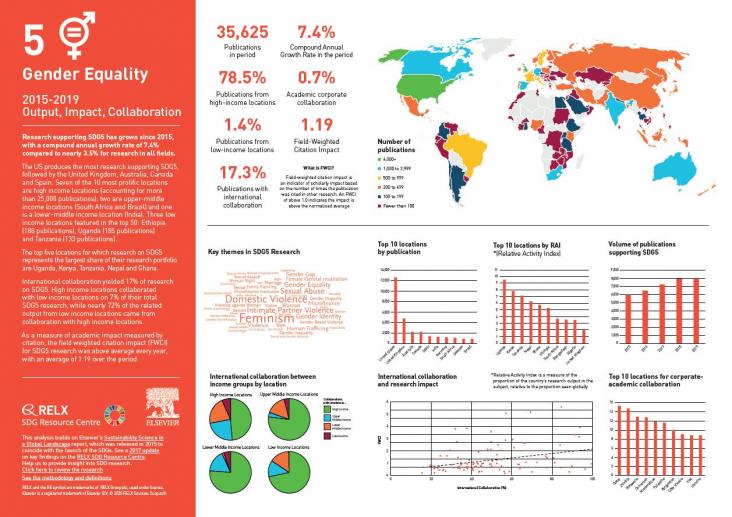Partner content
Global CitizenGlobal Citizen, 28th September 2020
Women and girls are the most socially and economically vulnerable to the COVID-19 pandemic, but the majority of countries worldwide are not taking the steps to protect them, according to a new report.
UN Women and the United Nations Development Programme (UNDP) released data on Monday that found only 1 in 8 countries have measures in place to shield women and girls from these effects. This article links to SDGs 3 and 5.

By mapping the state of research within each SDG area, this report acknowledges the pivotal role research plays in tackling some of the world’s greatest challenges. It aims to better understand the research community’s global sustainable development efforts and assesses the progress made, as well as unmet research needs.
Ruth Bader Ginsburg championed gender equality throughout her life. Find out more about how she advanced SDG 5.

Over the past five years, we have used data and analytics to help the research and healthcare communities navigate the sea of research and to put collaboration, both interdisciplinary and international, at the heart of scientific progress on the SDGs. View findings for SDG 5.
This ties into SDG 5 on gender equality by establishing a need for general recommendations and guidelines toward precision and sex/gender medicine, with regard to dosage, tolerability, interactions and side effects, sensitivity of diagnostic tests, and distinct treatment strategies.

Over the past five years, we have used data and analytics to help the research and healthcare communities navigate the sea of research and to put collaboration, both interdisciplinary and internati
Violence against women is a violation of human rights, crossing all cultures, classes, levels of education, earnings, ethnic and age groups.
To better understand how gender impacts parliamentary representation, we analysed representative claims made by parliamentarians in India, the world's largest democracy.
International advocacy and evidence have been critical for shifting the pervasive issue of violence against women onto the health agenda.
This study investigated the empowerment status of urban women in Pakistan using a multidimensional approach in Lahore – a metropolitan city.
